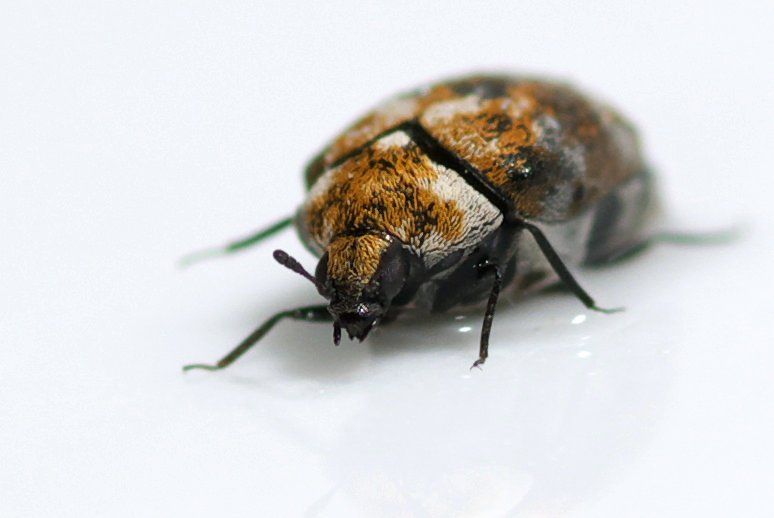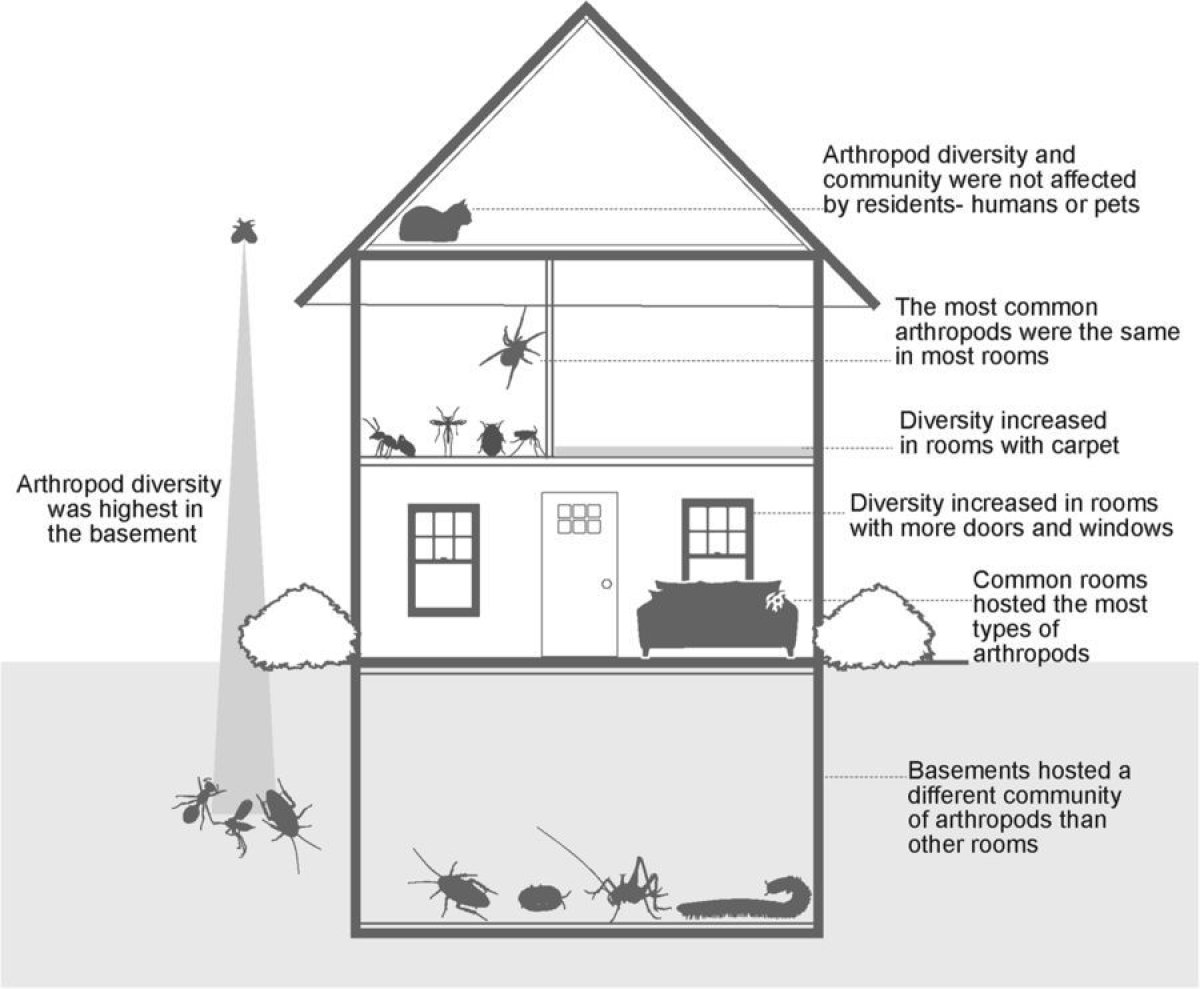
Everyone has uninvited guests in the house from time to time. Most of us even have a bunch of tiny roommates who don't pay rent. To be specific: Bugs of all shapes and sizes share our homes.
Plus, spiders.
Research published in the journal Scientific Reports explains what kinds of housing arthropods (like insects and arachnids) like the best. If you don't like insects inside the house, you may want to make your housing sub-optimal for them. However, for the most part, the amount of loving your place gets from bugs is based on how and where it was built.
For starters, bugs prefer bottom floors and basements. This shouldn't surprise anyone: Who wants to climb a flight of stairs when you're less than a centimeter tall? Also, if there are more doors and windows, that means it's easier for them to get in. Again, not surprising.
Carpets keep insects snug as a bug in a rug. Dust mites especially love them. However, the authors of the study suggested that other insects may become trapped in them.
And they found more diversity of insect species in common rooms. That's where the party is.
What was surprising was that the behavior of the people living in the houses didn't really affect the diversity of the insect population. It doesn't matter if you're messy or tidy. It doesn't matter if you have cats or dogs or any other pets. It doesn't even matter if you use pesticides. Bugs are all over the place, and sweeter digs just means that there will be more of a diversity of arthropods. Your house is like its own little ecosystem.
The scientists analyzed 50 homes for their structure and layout, as well as the activities of the humans living there. Then they compared them with the number and diversity of arthropods that they observed living there. They looked at book lice, gnats, ants, gall midges and carpet beetles.

The biology hiding inside the "built environment" has been of increasing interest to scientists. According to a 2001 survey, humans spend, on average, 90 percent of their lives indoors. Thus, what lives in our homes can have a dramatic influence on our physical and mental health. Researchers are investigating whether microscopic organisms that make their way into our bodies can spur certain psychiatric conditions by causing inflammation. Others are looking at how this indoor microbiome alters our immune system and other factors that affect our susceptibility to illness.
There isn't much you can do to prevent creepy crawlies from coming into your space. And, considering how much time we spend inside, our house insects might, as the authors suggest "serve as a connection to the outdoors." However, if it's really that important to you, you may want to rent or buy a home that doesn't have many doors or windows, and is on a top floor.
Or, you can try to get used to your tiniest roommates. Just don't expect them to do the dishes.
Uncommon Knowledge
Newsweek is committed to challenging conventional wisdom and finding connections in the search for common ground.
Newsweek is committed to challenging conventional wisdom and finding connections in the search for common ground.
About the writer
Kristin is a science journalist in New York who has lived in DC, Boston, LA, and the SF Bay Area. ... Read more
To read how Newsweek uses AI as a newsroom tool, Click here.








